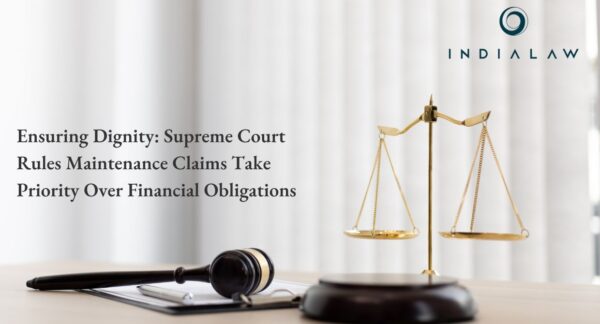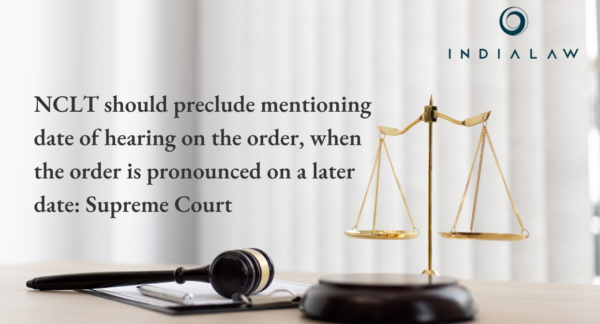Public Comments on IBBI Discussion Paper on Streamlining Processes under the Insolvency and Bankruptcy Code, 2016


Background
The Insolvency and Bankruptcy Board of India (IBBI) released a discussion paper on February 4, 2025, titled “Streamlining Processes under the Code: Reforms for Enhanced Efficiency and Outcomes.” This paper addresses various operational challenges encountered in the Corporate Insolvency Resolution Process (CIRP), Liquidation Process, and Insolvency Resolution & Bankruptcy Process of Personal Guarantors. The aim is to enhance efficiency, transparency, and effectiveness through key amendments to the relevant regulations. The IBBI invites public comments on these proposals to ensure comprehensive stakeholder input.
Table of Contents
Timeline for Submission of Public Comments
Public comments on the proposals can be submitted electronically by February 25, 2025. The submission process involves visiting the IBBI website, selecting the relevant discussion paper, providing personal details, and submitting specific or general comments.
Detailed Discussion of Each Proposal
1. Review of Expenditure on Goods and Services Availed During CIRP
Issue: Significant operational expenses, including leased properties and essential services, often accumulate during the CIRP period, affecting creditor realization. Proposal: Amend CIRP regulations to mandate regular review of operational expenses by the Committee of Creditors (CoC), with a comprehensive assessment by Resolution Professionals within 30 days of CoC formation. Quarterly reviews will be mandatory.
2. Coordinated Insolvency Resolution for Interconnected Entities
Issue: Current insolvency processes treat each entity as standalone, ignoring interdependencies, leading to inefficiencies and potential conflicts. Proposal: Introduce a mechanism for coordinated CIRP of interconnected entities, including joint hearings, common resolution professionals, information sharing, and synchronized timelines.
3. Presentation of All Resolution Plans Before the Committee of Creditors
Issue: Non-compliant resolution plans are sometimes not presented to the CoC, leading to lack of transparency. Proposal: Mandate the resolution professional to present all resolution plans, regardless of compliance status, to the CoC. Detailed compliance reports must be provided for each plan.
4. Mandatory Submission of Statement of Affairs by Corporate Debtors
Issue: Lack of readily available information about the corporate debtor at the start of CIRP leads to delays and inefficiencies. Proposal: Require corporate debtors to submit a Statement of Affairs, including financial statements and employee details, at the stage of consideration of application for initiation of CIRP.
5. Reliefs and Concessions Subsequent to Approval of Resolution Plan
Issue: Post-approval modifications to resolution plans create uncertainty and affect the sanctity of the CIRP timeline. Proposal: Explicitly state that no modifications can be sought once a resolution plan is approved. All conditions must be built into the plan before approval.
6. Incentivizing Interim Finance Providers
Issue: Interim finance providers often hesitate to extend funding due to limited visibility into the CIRP process. Proposal: Empower the CoC to invite interim finance providers to attend CoC meetings as observers, enhancing their engagement and potentially increasing funding availability.
7. Disclosure and Treatment of Avoidance Transactions
Issue: Current regulations lack comprehensive disclosure requirements for avoidance transactions, leading to reduced transparency. Proposal: Mandate detailed disclosure of identified avoidance transactions in the Information Memorandum, with regular updates and clear treatment guidelines in resolution plans.
8. Request for Resolution Plans for Part-Wise Resolution of Corporate Debtor
Issue: Sequential approach to inviting resolution plans for the entire corporate debtor and specific assets leads to extended timelines and value erosion. Proposal: Allow concurrent invitations for resolution plans for both the corporate debtor as a whole and specific businesses or assets, with CoC approval.
9. Empowering CoC for Expedited Implementation of Resolution Plans
Issue: Delays between submission and approval of resolution plans lead to value erosion and suboptimal price discovery. Proposal: Introduce a two-stage approval process where the financial bid and basic implementation framework can be approved early, enabling quicker takeover and implementation by the Resolution Applicant.
10. Non-Receipt of Repayment Plan Under Insolvency Resolution of Personal Guarantor
Issue: Ambiguity in procedural pathway when no repayment plan is prepared by the debtor after application admission. Proposal: Mandate the resolution professional to submit a report to the Adjudicating Authority, notifying it of the non-submission of a resolution plan, enabling termination of the insolvency resolution process and allowing for bankruptcy filing.
11. Sale of Corporate Debtor as a Going Concern
Issue: Sale as a going concern during liquidation has led to lower recoveries, increased costs, and legal disputes. Proposal: Omit provisions relating to sale as a going concern in Liquidation Regulations, streamlining the liquidation process and potentially improving creditor recoveries.
Conclusion
The IBBI’s discussion paper represents a significant step towards enhancing the efficiency, transparency, and effectiveness of insolvency and bankruptcy processes in India. By addressing key operational challenges and proposing targeted regulatory amendments, these reforms aim to streamline the Corporate Insolvency Resolution Process (CIRP), improve outcomes for creditors and debtors alike, and ensure a more robust and fair insolvency ecosystem. The proposed changes are designed to reduce uncertainties, minimize delays, and maximize value realization, thereby fostering a more conducive environment for business restructuring and economic recovery. The IBBI’s invitation for public comments underscores its commitment to inclusive and informed policymaking, ensuring that the final regulations reflect the diverse needs and perspectives of all stakeholders.
For further details write to contact@indialaw.in




